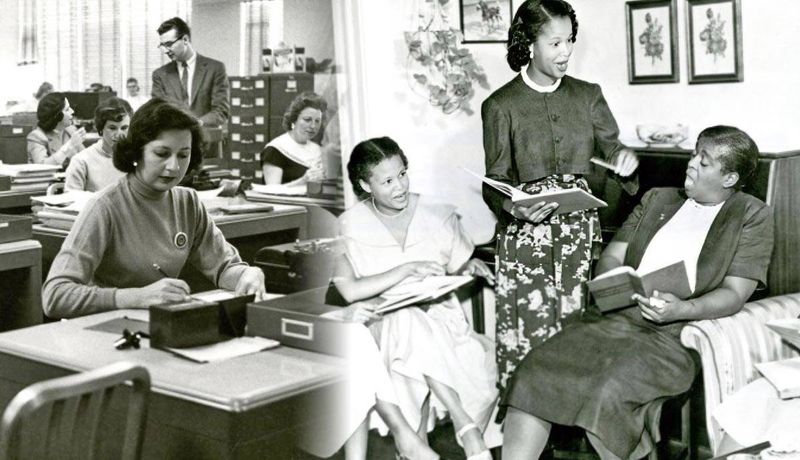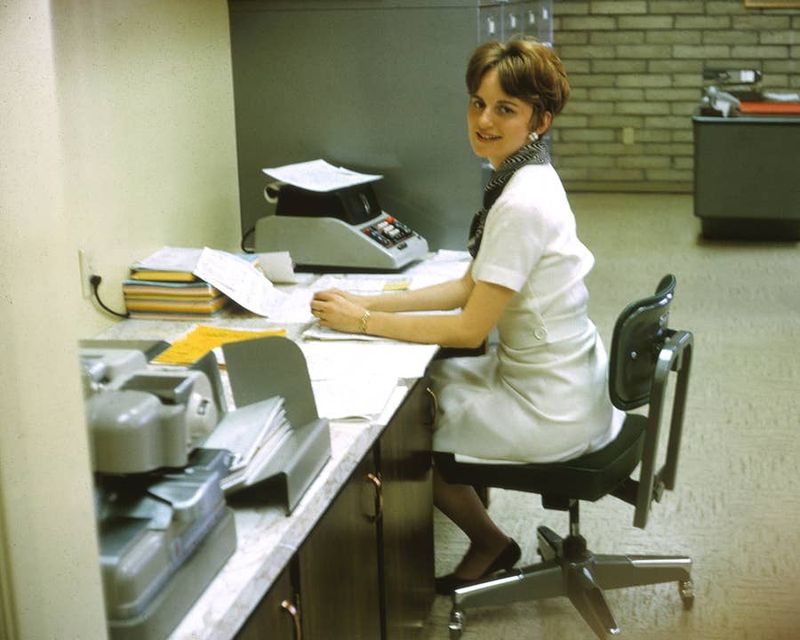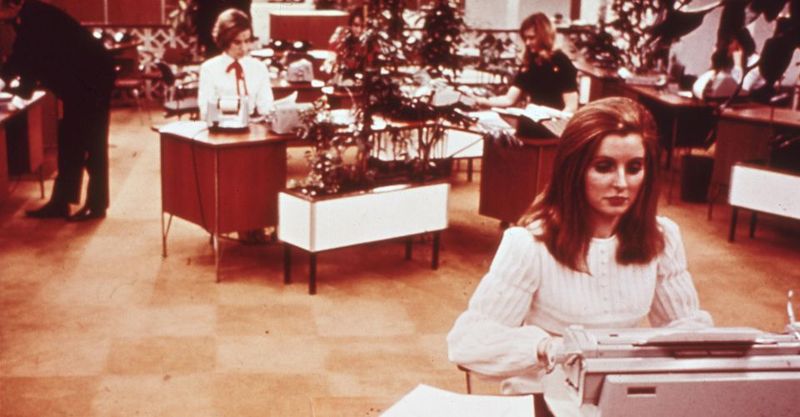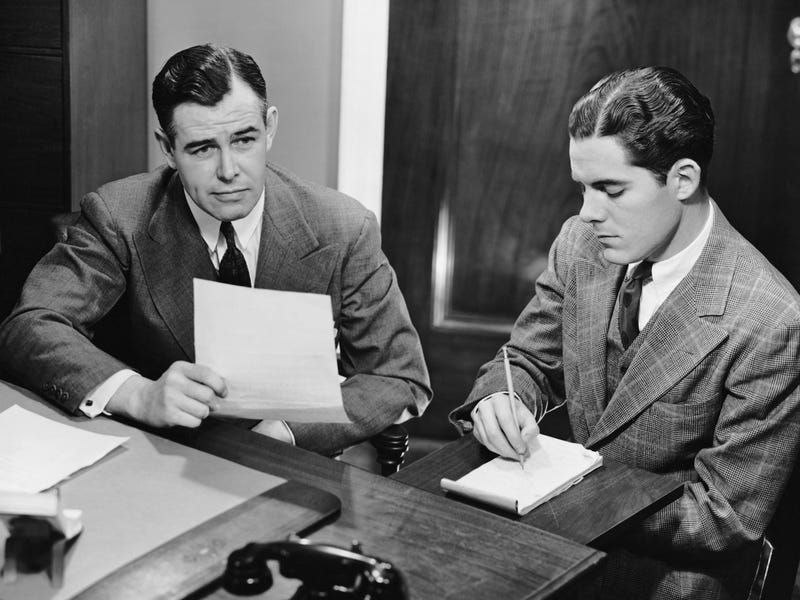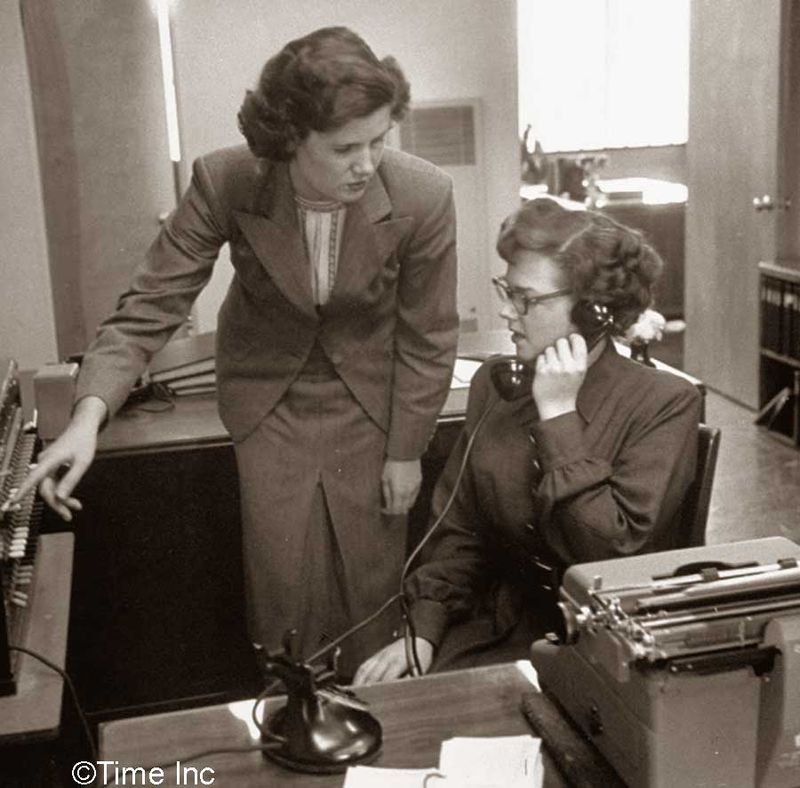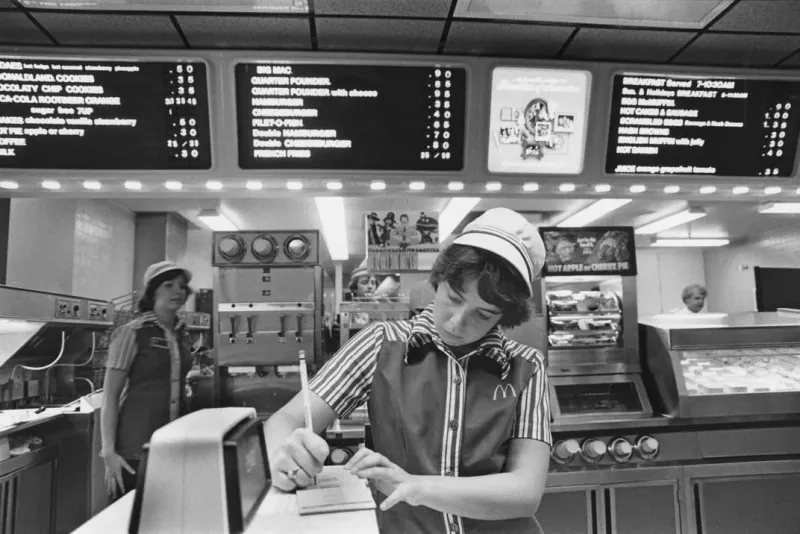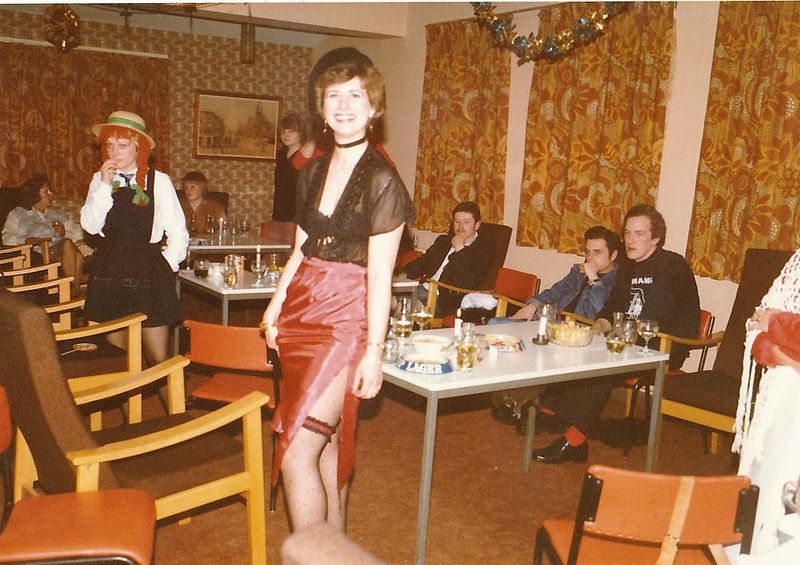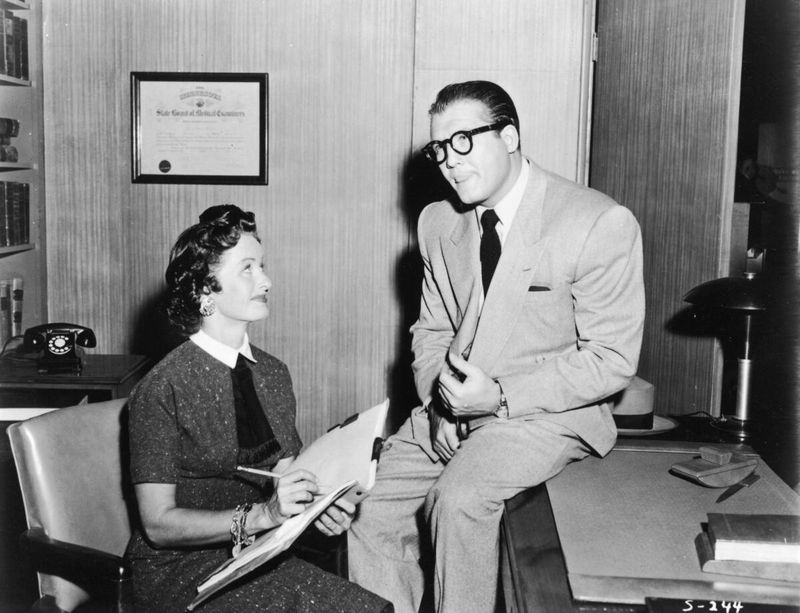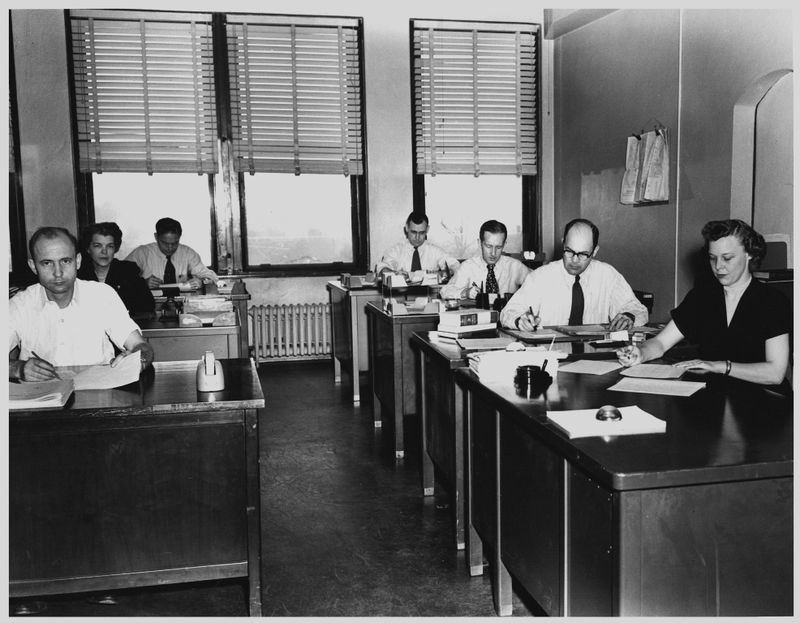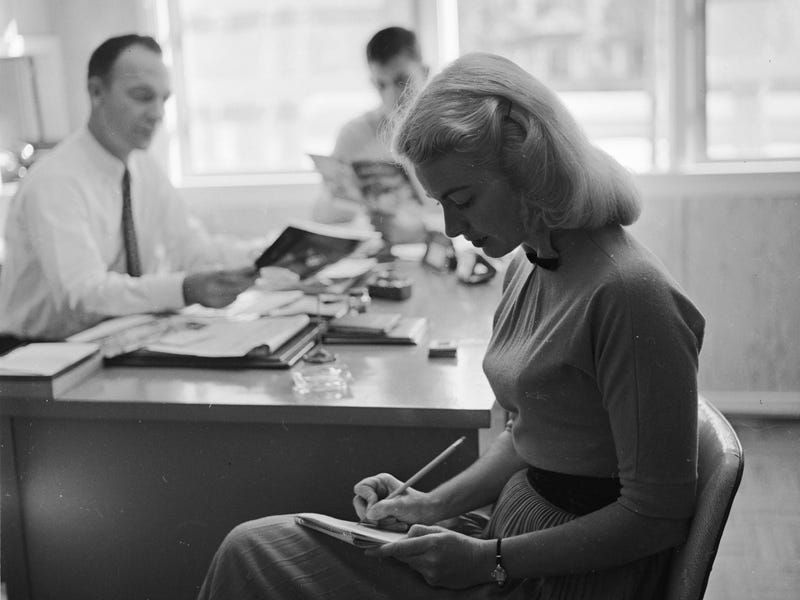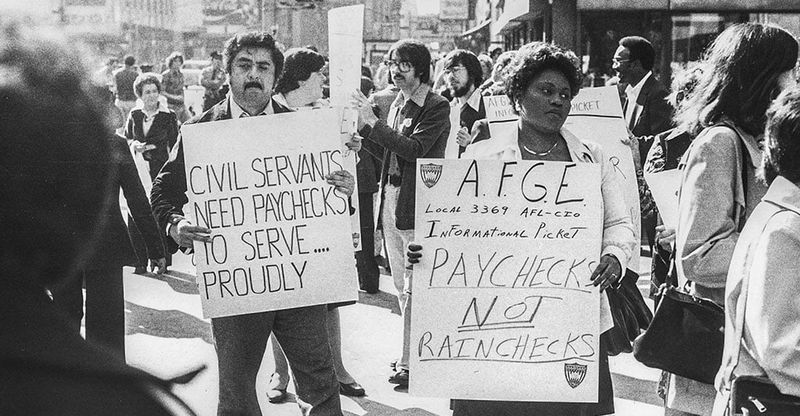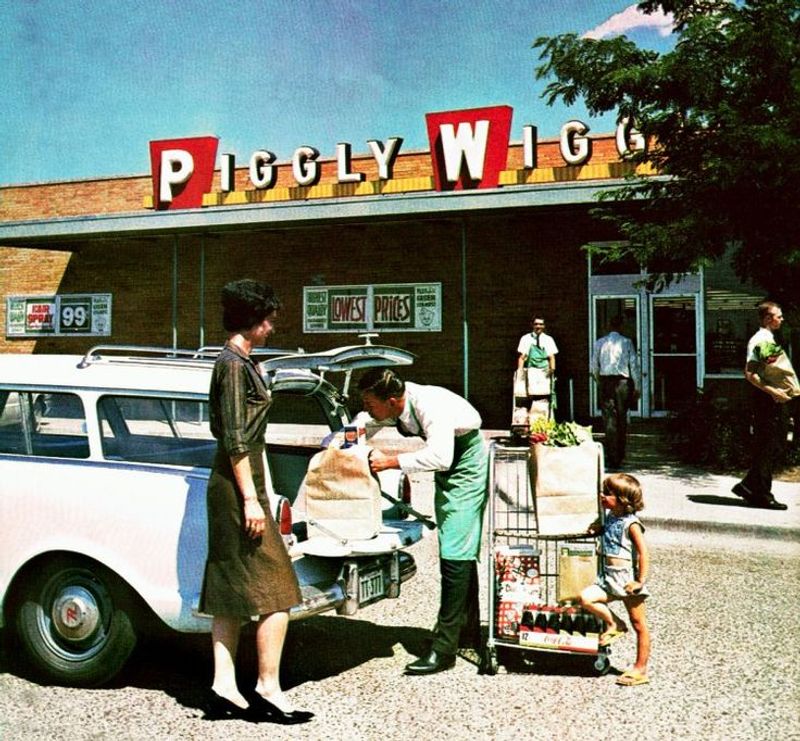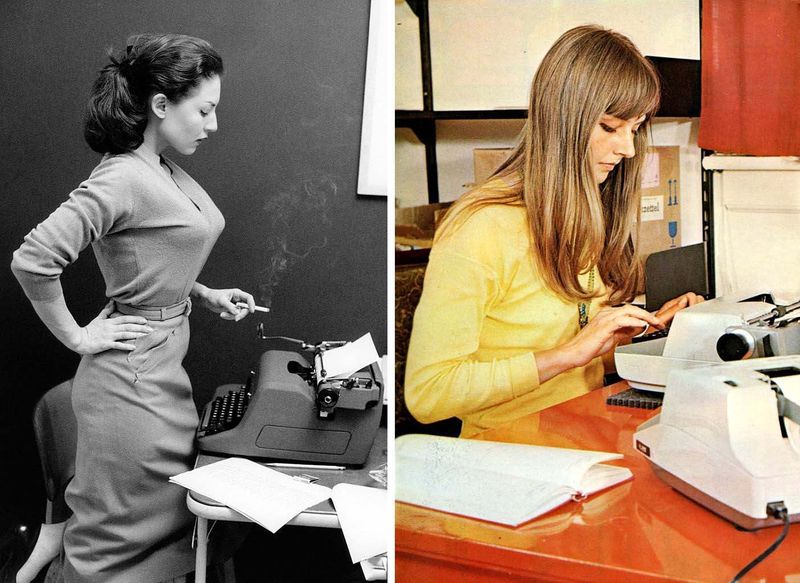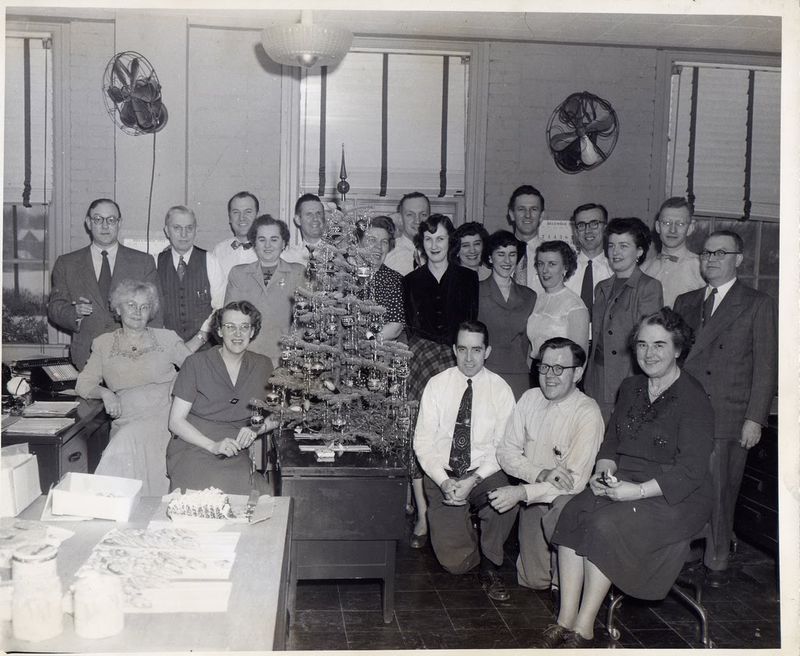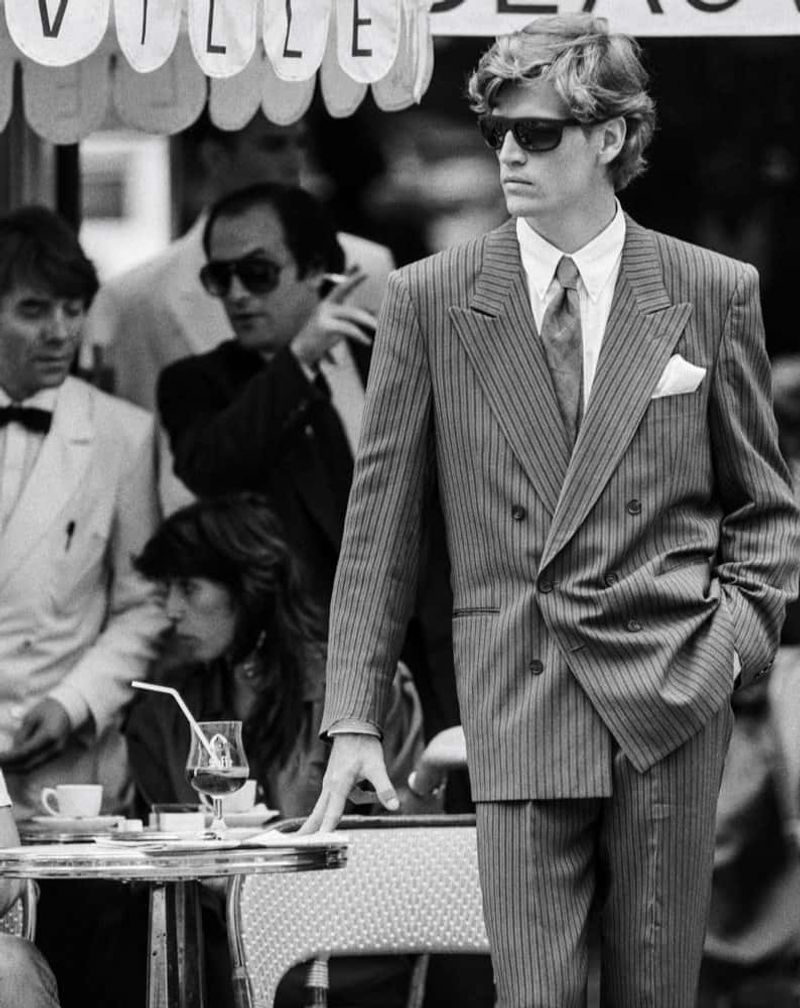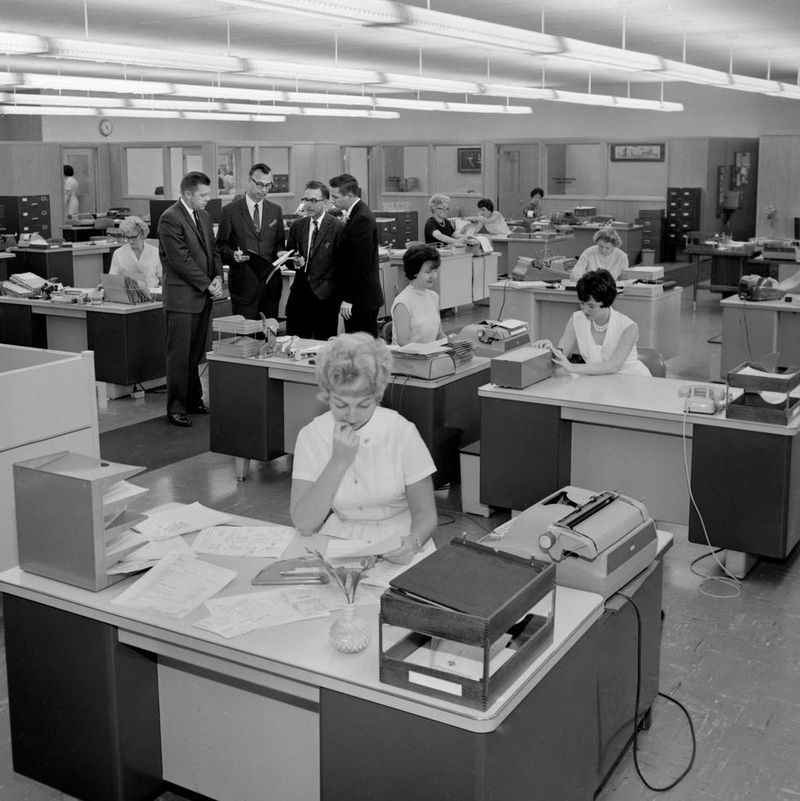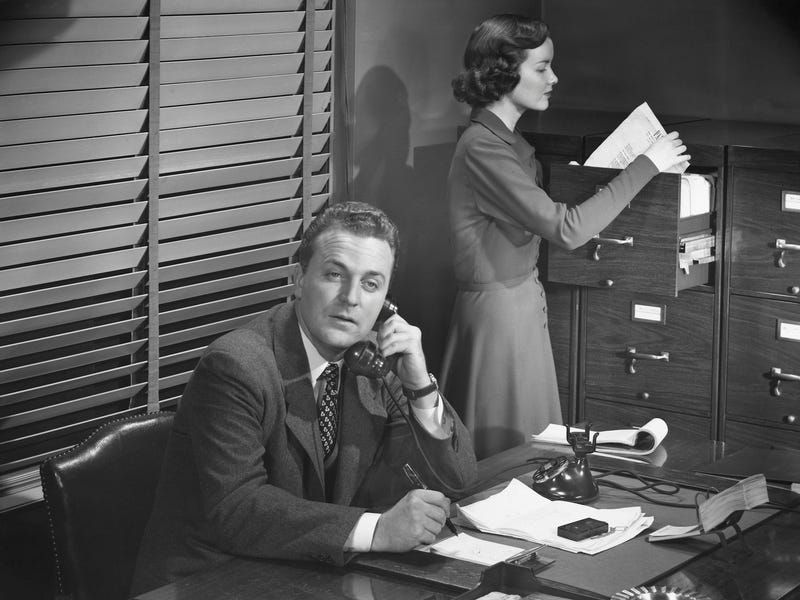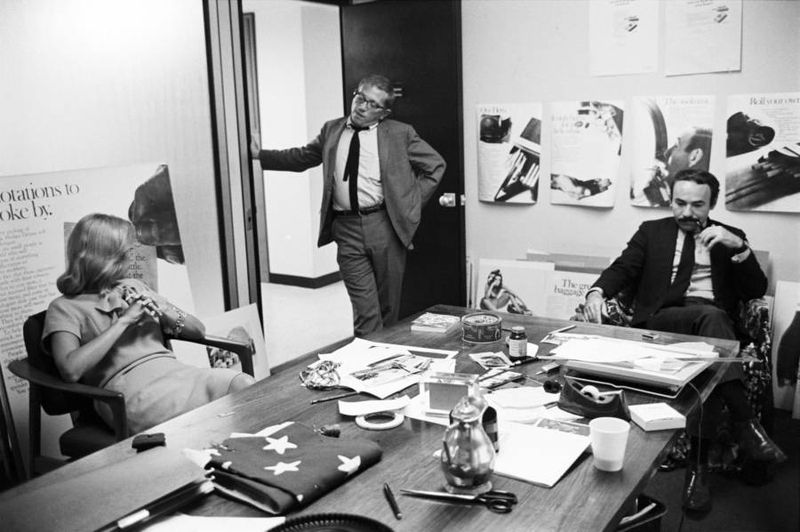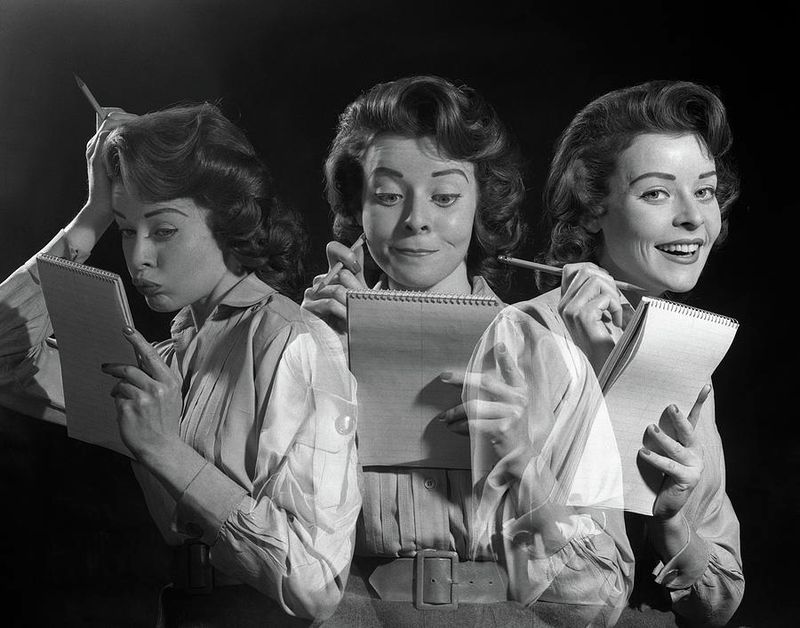Once upon a time, offices were smoke-filled dens of typewriters, Rolodexes, and wildly inappropriate sayings. From sexist quips to micromanaging mottos, the workplace culture of the past would raise more than a few HR eyebrows today. Here are 20 vintage work sayings that—thankfully—would never fly in a modern office.
1. “That’s not a woman’s job.”
The phrase “That’s not a woman’s job” pigeonholed women into specific roles, often denying them opportunities for advancement or skill development. Stereotypes dictated that certain professions were unsuitable for women, limiting their potential and fostering inequality in the workplace.
Today’s work culture embraces diversity and inclusion, recognizing talent, not gender, as the true measure of capability. Women now thrive in fields once dominated by men, from engineering to leadership roles. This progressive shift has opened doors for countless individuals, breaking down barriers and paving the way for a more equitable and dynamic professional landscape.
2. “If you’re not early, you’re late.”
The saying “If you’re not early, you’re late” was once a mantra for punctuality. It instilled a culture of fear and pressure to always be ahead of the clock, sacrificing personal time for the company. Employees felt like they had to sacrifice their personal time for the company, often at the expense of work-life balance.
Today, many workplaces value outcomes over strict adherence to time. Flexible hours have become commonplace, allowing employees to manage their schedules better. This shift promotes a healthier work-life balance, encouraging productivity and job satisfaction without the constant race against the clock.
3. “Smile, sweetheart—it’s good for morale.”
Back in the Mad Men era, “Smile, sweetheart” was a common refrain. Managers believed that a smiling workforce boosted morale and productivity. However, this phrase often belittled women, reducing them to mere ornaments expected to bring cheer to the office environment.
In contemporary workplaces, such comments are seen as inappropriate and patronizing. Encouraging genuine expressions of emotions and fostering a respectful environment has replaced the superficial demand for smiles. Today’s offices aim to create spaces where employees feel comfortable being their authentic selves, without being subjected to outdated and sexist expectations.
4. “Don’t question the boss.”
Decades ago, challenging superiors was unthinkable. The boss’s word was law, and employees were expected to follow without question. This created a hierarchical environment where innovation and creativity were often stifled.
Now, healthy dialogue and constructive feedback are encouraged. Organizations understand that collaboration and diverse perspectives lead to better decision-making and innovation. Employees feel empowered to voice their ideas and concerns, fostering a culture of mutual respect and growth. The shift from a top-down approach to a more inclusive one has transformed workplaces into dynamic and engaging environments.
5. “He’s a real company man.”
In the past, being labeled a “company man” was the ultimate compliment. It signified unwavering loyalty and dedication to the company, often at the expense of personal time and family life. Employees were expected to prioritize work above all else, embodying the company’s values and goals.
Today, the narrative has shifted. Work-life balance is prioritized, and employees are encouraged to pursue personal passions outside of work. The modern workplace recognizes that a fulfilled employee is a productive one. This evolution reflects a broader understanding that loyalty is earned through mutual respect and support, not blind devotion.
6. “Let the girls handle the phones.”
In the mid-20th century, secretarial work was predominantly considered a woman’s domain. Offices were filled with the rhythmic chatter of typewriters, where the ‘girls’ handled calls, scheduling, and typing. Men often assumed leadership roles while women were relegated to supporting positions without consideration for their potential.
Modern workplaces view this as blatant gender discrimination. Today, talent and skills determine roles, not gender. The shift towards equality empowers all employees, regardless of gender, to aspire to any role they wish. Society has moved beyond outdated stereotypes, celebrating diversity and inclusion in the workplace.
7. “If you’ve got time to lean, you’ve got time to clean.”
This saying from the fast-food industry epitomized micromanagement. Managers used it to keep employees constantly busy, equating idleness with inefficiency. It created a culture of surveillance where employees felt they were always being watched.
Today’s creative workplaces focus on results rather than constant activity. Employees are trusted to manage their time effectively, encouraging innovation and autonomy. The shift away from micromanagement fosters a more positive work environment, where employees feel valued and empowered. It’s about quality over quantity, allowing individuals to thrive without the pressure of constant oversight.
8. “Work hard, play harder… at the office party.”
Office parties in the past often blurred the lines between professional and personal boundaries. The saying “Work hard, play harder” encouraged excessive celebration, sometimes leading to inappropriate behavior and regrettable decisions.
Modern HR practices emphasize professionalism and appropriate conduct, even during after-hours events. While social gatherings are still valued for team-building, they are conducted with respect and decorum. The shift reflects a more mature and respectful approach to workplace interactions, ensuring that employees can enjoy themselves without crossing boundaries or compromising their professional image.
9. “Boys will be boys.”
The phrase “Boys will be boys” was often used to excuse unprofessional or inappropriate behavior in the workplace. Crude jokes, flirtation, and even harassment were brushed aside with this dismissive saying, leaving many feeling uncomfortable or marginalized.
Today’s workplaces have zero tolerance for such behavior. Companies actively promote a culture of respect and equality, holding everyone accountable for their actions. The emphasis on clear boundaries and professional conduct ensures a safe and inclusive environment for all employees, where everyone can contribute without fear of discrimination or harassment.
10. “That’s above your pay grade.”
The saying “That’s above your pay grade” was used to maintain strict hierarchies within organizations. It discouraged employees from thinking beyond their roles, limiting innovation and growth. Managers used it to assert control and keep employees in their place.
In contrast, modern workplaces value transparency and inclusion. Employees are encouraged to contribute ideas and challenge norms, regardless of their position. This shift empowers individuals to take initiative and fosters a collaborative environment where everyone feels valued and heard. The dismantling of rigid hierarchies has paved the way for a more dynamic and innovative corporate culture.
11. “Let’s circle back on that… in six months.”
Procrastination disguised as strategy, this phrase allowed managers to delay decisions indefinitely. It often led to stagnation, with projects stuck in limbo and employees frustrated by the lack of progress.
Today, the pace of business demands agility and quick decision-making. Digital tools and transparent communication ensure accountability and follow-through. The modern approach favors timely action and iterative processes, where feedback is continuously integrated. This dynamic environment encourages progress and innovation, moving away from the sluggish practices of the past and embracing a more proactive and responsive business culture.
12. “You’re lucky to have a job.”
Once used to instill fear and compliance, “You’re lucky to have a job” thrived in top-down cultures where employees felt disposable. It was a reminder that gratitude should overshadow any dissatisfaction or desire for growth.
Today, mutual respect and recognition define the employer-employee relationship. Companies compete to attract and retain talent, understanding the value of a satisfied workforce. Employees seek environments that offer personal and professional growth, and businesses that prioritize their people thrive. This shift marks a departure from fear-based management to one that values collaboration and mutual benefit.
13. “The customer is always right.”
A mantra of customer service, “The customer is always right” demanded employees cater to every customer whim, often at the expense of their dignity and well-being. It placed undue pressure on staff, sometimes leading to mistreatment and unrealistic expectations.
While customer satisfaction remains crucial, modern businesses prioritize employee welfare alongside it. Employees are protected from abusive behavior, and there is a greater emphasis on mutual respect. Companies recognize that a happy employee leads to better service, creating a balanced approach that values both customer needs and employee dignity.
14. “I’ll get my girl to type that up.”
Referring to skilled administrative professionals as “my girl” trivialized their expertise and contributions. It reinforced gender hierarchies and minimized the value of essential support roles within the office.
Today, respect and appreciation for all roles are emphasized. Administrative professionals are recognized for their vital contributions and treated as valued team members. The shift towards egalitarianism acknowledges the diverse skills and talents that each individual brings to the workplace, promoting a culture of respect and collaboration that transcends outdated gender norms.
15. “That’s how we’ve always done it.”
“That’s how we’ve always done it” was a conversation-stopper, preventing innovation and discouraging change. It upheld the status quo, stifling creativity and progress in favor of comfort and familiarity.
Modern workplaces thrive on adaptability and continuous improvement. Innovation is encouraged, and challenging the norm is seen as a pathway to growth. This shift from rigidity to openness fosters a dynamic environment where new ideas are valued, leading to advancements and a more vibrant corporate culture. Employees feel empowered to question and innovate, driving both personal and organizational success.
16. “Dress for the job you want, not the job you have.”
Once gospel in the age of shoulder pads and power suits, this saying emphasized appearance over competence. Employees were judged by their attire, perpetuating a culture of superficiality where dressing the part was prioritized over actual performance.
Today, success is defined by skills and accomplishments rather than appearances. Many workplaces embrace casual dress codes that allow employees to express themselves while focusing on their work. This shift promotes authenticity and comfort, enabling individuals to thrive without the constraints of rigid dress expectations. The focus is now on substance over style.
17. “Don’t bring your personal life to work.”
The notion of checking personal issues at the door led to a culture of emotional suppression. Employees felt they had to leave their true selves behind, creating a facade that often hindered genuine connections and well-being.
Modern workplaces prioritize mental health and work-life integration. Employees are encouraged to bring their whole selves to work, fostering authenticity and empathy. This supportive environment recognizes that personal experiences influence professional lives, promoting a holistic approach to employee well-being and productivity. The result is a more engaged and connected workforce.
18. “He’s just being assertive.”
This phrase was often used to justify aggressive behavior from men, while women exhibiting similar traits were labeled as “difficult.” It reinforced double standards and gender biases, limiting women’s opportunities for advancement.
Today’s workplaces strive for equality, acknowledging that assertiveness is a valuable trait for all, regardless of gender. Encouraging open communication and fair treatment, modern businesses dismantle outdated stereotypes, promoting an environment where everyone can thrive. This shift empowers individuals to express themselves confidently and authentically, creating a more inclusive and equitable workplace.
19. “You’ll earn respect eventually—if you keep your head down.”
Keeping one’s head down was once seen as a path to respect, implying that silent loyalty and hard work would eventually lead to recognition. This passive approach often left employees feeling overlooked and undervalued.
Modern workplaces reward initiative, creativity, and self-advocacy. Employees are encouraged to take ownership of their careers, voice their ideas, and actively participate in their growth. The shift from passive compliance to active engagement fosters a dynamic and empowered workforce, where respect is earned through contributions and collaboration rather than silent submission.
20. “You can sleep when you’re dead.”
This saying glorified burnout culture, celebrating overworking as a badge of honor. Employees were expected to sacrifice rest for productivity, leading to exhaustion and decreased well-being.
Today, the importance of work-life balance and mental health is recognized. Organizations promote rest and recovery, understanding that well-rested employees are more productive and creative. By prioritizing employee well-being, modern workplaces foster a sustainable and healthy work environment, breaking away from the destructive practices of the past. The focus is on long-term success, not short-term burnout.

